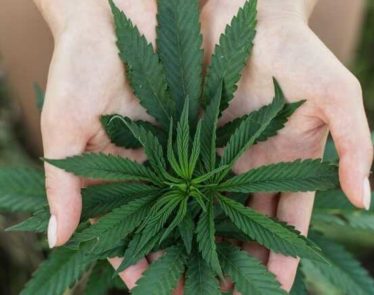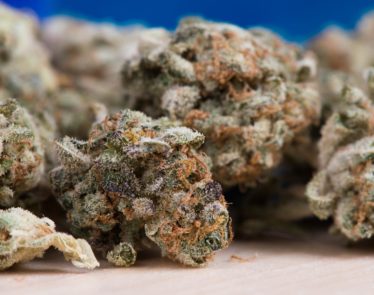
Despite marijuana acceptance growing across the globe, synthetic cannabis is still an issue. For years, Pharmaceutical companies have been trying to emulate the effects of marijuana to dominate territories where medical marijuana is still illegal and/or to take advantage of the misinformed who think that the real deal is more dangerous than the man-made copy-cat.
How these synthetics usually work, is that they try to block the process by which naturally-occurring cannabinoid compounds are broken-down in the body, thus keeping the cannabinoid level high. This tries to mimic the increased cannabinoid levels that taking marijuana causes.
Biotrial — Synthetic Cannabis
In a recent trial that went wrong, Biotrial — a French pharmaceutical research company, conducted a trial of a synthetic drug designed to treat anxiety and motor function associated with Parkinson's disease, along with pain in cancer sufferers. The drug was created in Portugal by a company named Bial.
The trial tragically resulted in one death and five other hospitalizations, where four of those are believed to now be severely brain damaged.
As stated, the drug was to block necessary processes in the human Endocannabinoid Signaling (ECS) system. This was the first time it was tested on people but it had previously been tested on animals.
The Trial
The 128 participants in the trail were volunteers ranging from 18 and 55 years old. Each was paid to take part. The volunteers were given varying doses of the drug with a certain percentage of participants receiving a placebo instead. Those affected the worst were the six participants who received higher dosages of the drug. It took several days before their severe adverse reactions kicked in.
Soon after being hospitalized, one died after being declared brain dead. The other five survived but four of them may have a permanent disability due to neurological damage.
According to Cannabis Digest: “This new synthetic drug was supposed to inhibit the enzymes responsible for the natural destruction or metabolic degradation of cannabinoids in our body after they are no longer needed. Blocking these enzymes prevents the body’s natural ability to remove cannabinoids and causes their levels to increase. Theoretically, this enzyme blocker should help increase Endocannabinoid levels and relieve pain”.
Synthetic Abuse
The problem with cannabis being illegal both medically and (to a degree) recreationally, is that illegality encourages synthetic production. This leads to synthetic production at all levels from the streets to the labs and killer synthetics such as "K2" now cause more and more incidences leading to death or near-death. But what's provided naturally in nature cannot be replicated to the same standard in a kitchen and even as Bial has discovered — in a lab. Synthetics are usually the product of a blend of chemicals none of which are recommendable for human consumption.
Last year, a man dropped dead after inhaling synthetic cannabis in New Zealand and only recently at July 4th celebrations in the US, 14 people were treated for overdose caused by synthetic use. Also, in a prison in Florida, K2 has caused the deaths of several inmates.
>>When Marijuana Becomes Legal in Canada, Be Careful at the US Borders!
Where medical cannabis is legal, freedom of choice is allowed for patients in need, but also for labs to study the effects and medical possibilities of this natural plant. We already know that cannabis provides healthcare benefits for many people, the sooner it is made legal everywhere, the better.
It seems baffling that legislation would rather a copycat of something on the streets, rather than the legitimate product. Would you want a synthetic blood used in a transfusion?
I think not.
Featured Image: Deposit Image/nelsonpeng













